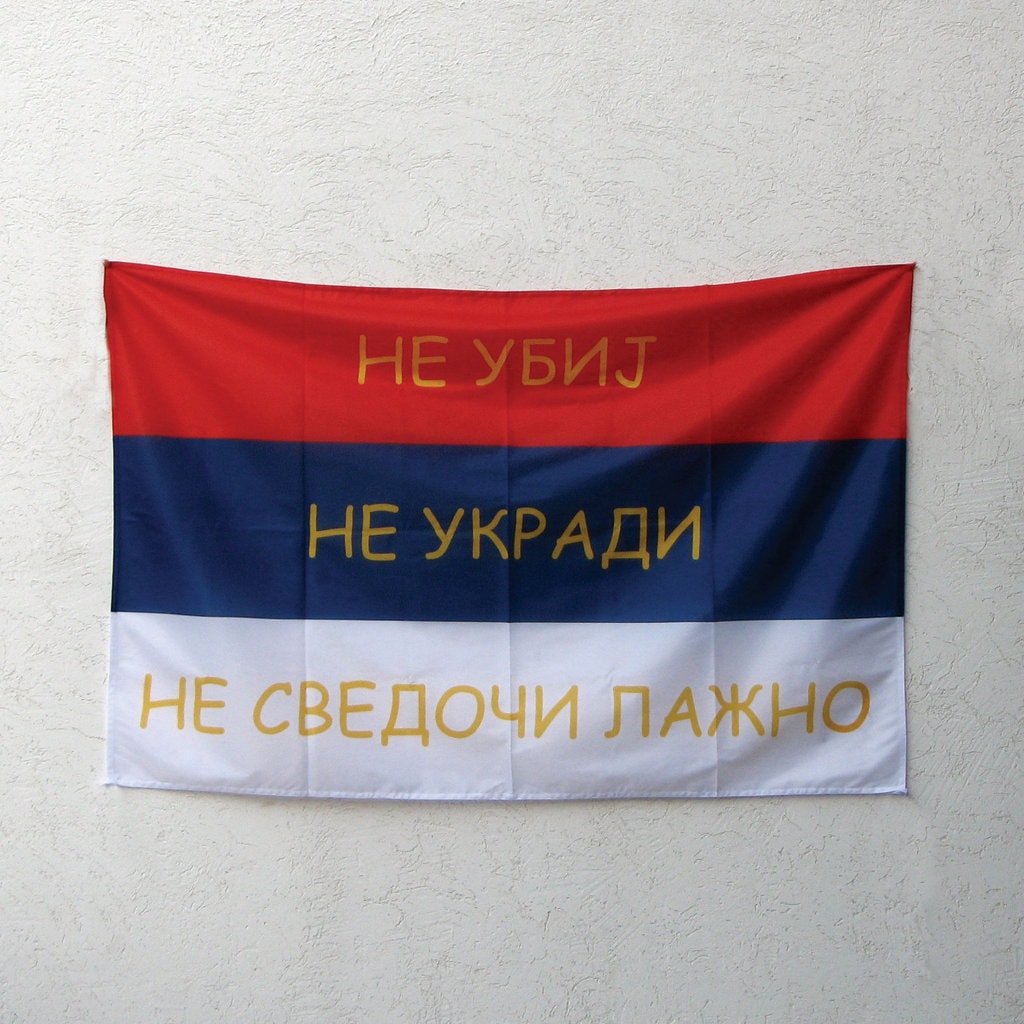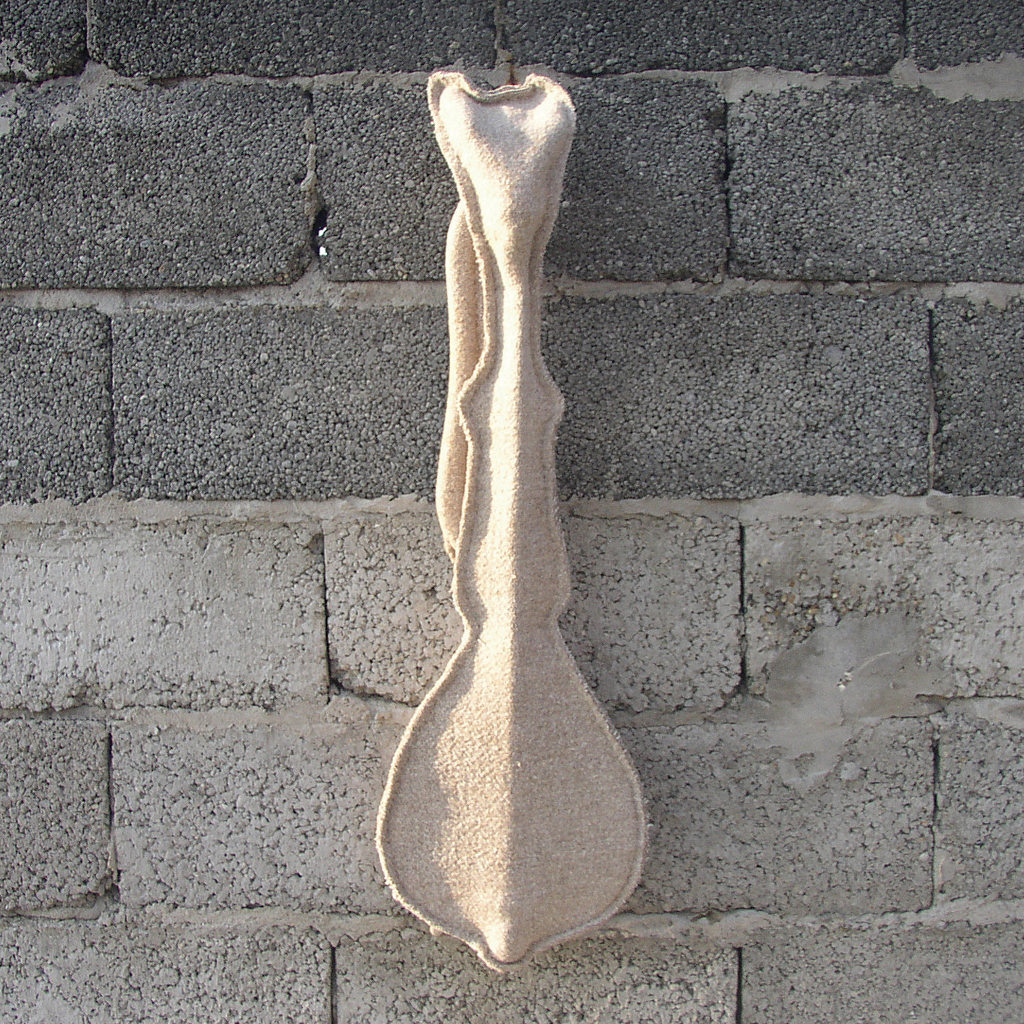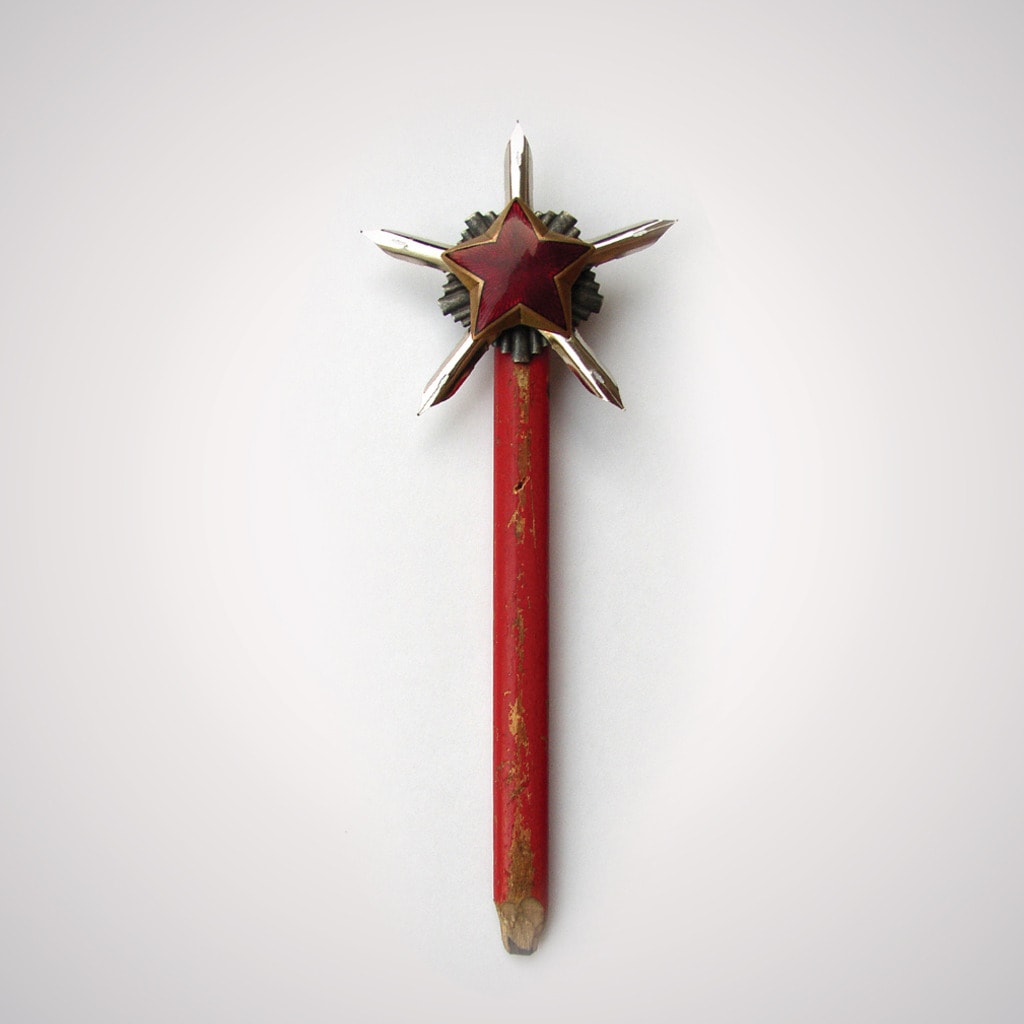Radoje Domanović
The Leader
"Brothers and friends, I have listened to all your speeches, so I ask you now to listen to me. All our deliberations and conversations aren't worth anything as long as we remain in this barren region. In this sandy soil and on these rocks nothing has been able to grow, even when there were rainy years, let alone in this drought the likes of which none of us has ever seen before.
How long will we get together like this and talk in vain? The cattle are dying without food, and pretty soon we and our children will starve too. We must find another solution that's better and more sensible. I think it would be best to leave this arid land and set out into the world to find better and more fertile soil because we simply can't live like this any longer.
Thus an inhabitant of some infertile province spoke once in a tired voice at some meeting. Where and when that was does not concern you or me, I think. It is important to believe me that it happened somewhere in some land long ago, and that is enough. To be honest, at one time I thought I had somehow invented this whole story, but little by little I freed myself from this nasty delusion. Now I firmly believe that all I am going to relate really happened and must have happened somewhere and sometime and that I could never by any means have made it up."
The listeners, with pale, haggard faces and blank, gloomy, almost uncomprehending gazes, with their hands under their belts, seemed to come alive at these wise words. Each was already imagining that he was in some kind of magic, paradisiacal land where the reward of backbreaking work would be a rich harvest.
"He's right! He is right!" whispered the exhausted voices on all sides.
"Is this place nea...r... by?" a drawn-out murmur was heard from a corner.
"Brothers! another began with a somewhat stronger voice. "We must follow this advice immediately because we can't go on like this any longer. We have toiled and strained ourselves, but all has been in vain. We have sown seed that could have been used for food, but the floods came and washed the seed and soil away from the slopes so that only bare rock was left. Should we stay here forever and labor from morning to night only to remain hungry and thirsty, naked and barefooted? We've got to set out and look for better and more fertile soil where hard work will yield plentiful crops."
"Let's go! Let's go immediately because this place is not fit to be lived in anymore!" Whispering arose, and each began walking away, not thinking where he was going.
"Wait, brothers! Where are you going?" the first speaker started again. "Sure we must go, but not like this. We've got to know where we're going. Otherwise we might end up in a worse situation instead of saving ourselves. I suggest that we choose a leader whom we'll all have to obey and who'll show us the best and most direct way."
"Let's choose! Let's choose somebody right away," was heard all around.
Only now did the arguing arise, a real chaos. Everybody was talking and no one was either listening or able to hear. They began splitting up in groups, each person mumbling to himself, and then even the groups broke up. In twos, they began taking each other by the arm, talking, trying to prove something, pulling each other by the sleeve and motioning silence with their hands. Then they all assembled again, still talking.
"Brothers!" suddenly resounded a stronger voice which drowned out all the other hoarse dull voices. "We can't reach any kind of agreement like this. Everybody is talking and nobody is listening. Let's pick a leader! Whom among us can we choose? Who among us has travelled enough to know the roads? We all know each other well, and yet I for one wouldn't put myself and my children under the leadership of a single person here. Rather, tell me who knows that traveller over there who's been sitting in the shade on the edge of the road since this morning?"
Silence fell. All turned toward the stranger and sized him up from head to toe.
The traveller, middle-aged, with a somber face which was scarcely visible on account of his beard and long hair, sat and remained silent as before, absorbed in thought, and tapped his big cane on the ground from time to time.
"Yesterday I saw that same man with a young boy. They were holding each other by the hand and going down the street. And last night the boy left the village but the stranger stayed here.
"Brothers, let's forget these silly trifles so we won't lose any time. Whoever he is, he's come from far away since none of us knows him and he most certainly knows the shortest and best way to lead us. It's my judgement he's a very wise man because he's sitting there silently and thinking. Anyone else would have already pried into our affairs ten times or more by now or would have begun a conversation with one of us, but he has been sitting there the whole time quite alone and saying nothing.
"Of course, the man's sitting quietly because he's thinking about something. It can't be otherwise except that he's very smart," concurred the others and began to examine the stranger again. Each had discovered a brilliant trait in him, a proof of his extraordinary intelligence.
Not much more time was spent talking, so finally all agreed that it would be best to ask this traveller - whom, it seemed to them, God had sent - to lead them out into the world to look for a better territory and more fertile soil. He should be their leader, and they would listen to him and obey him without question.
They chose ten men from among themselves who were to go to the stranger to explain their decision to him. This delegation was to show him the miserable state of affairs and ask him to be their leader.
So the ten went over and bowed humbly. One of them began talking about the unproductive soil of their area, about the dry years and the misery in which they all found themselves. He finished in the following manner:
"These conditions force us to leave our homes and our land and to move out into the world to find a better homeland. Just at this moment when we finally reached agreement, it appears that God has shown mercy on us, that he has sent you to us - you, a wise and worthy stranger - and that you'll lead us and free us from our misery. In the name of all the inhabitants here, we ask you to be our leader. Wherever you might go, we'll follow. You know the roads and you were certainly born in a happier and better homeland. We'll listen to you and obey each of your commands. Will you, wise stranger, agree to save so many souls from ruin? Will you be our leader?"
All during this imploring speech, the wise stranger never lifted his head. The whole time he remained in the same position in which they had found him. His head was lowered, he was frowning and he said nothing. He only tapped his cane on the ground from time to time and--thought. When the speech was over, he muttered curtly and slowly without changing his position, "I will!"
"Can we go with you then and look for a better place?"
"You can!" he continued without lifting his head.
Enthusiasm and expressions of appreciation arose now, but the stranger did not say a word to any of it.
The ten informed the gathering of their success, adding that only now did they see what great wisdom this man possessed.
"He didn't even move from the spot or lift his head at least to see who was talking to him. He only sat quietly and meditated. To all our talk and appreciation he uttered only four words."
"A real sage! Rare intelligence!" they happily shouted from all sides, claiming that God himself had sent him as an angel from heaven to save them. All were firmly convinced of success under such a leader whom nothing in the world could disconcert.
And so it was decided to set out the next day at daybreak.
On the next day everyone who had the courage to go on a long journey assembled. More than two hundred families came to the appointed place. Only a few remained at home to look after the old homestead.
It was indeed sad to look at this mass of miserable people whom bitter misfortune had forced to forsake the land on which they were born and in which lay the graves of their ancestors. Their faces were haggard, worn-out and sunburned. The suffering of many long, laborious years showed its effect on them and conveyed a picture of misery and bitter despair. But in this very instant there was seen the first glimmer of hope--mixed with homesickness, to be sure. A tear flowed down the wrinkled face of many an old man who sighed desperately and shook his head with an air of evil foreboding. He would rather remain for some time so that he too could die among these rocks instead of looking for a better homeland. Many of the women lamented loudly and bade farewell to their dead loved ones, whose graves they were leaving.
The men were trying to put up a brave front and were shouting, "Well, do you want to keep on starving in this damned land and living in these shacks? Actually they would have liked best of all to take the whole cursed region and their run-down houses with them if it had been possible.
There was the usual noise and shouting as in every mass of people. Both men and women were restless. The children were shrieking in cradles on their mother's backs. Even the livestock were a bit uneasy. There were not too many cattle, a calf here and there and then a lean, shaggy hack with a large head and fat legs, on which they were loading old rugs, bags and even two sacks over the pack saddle, so that the poor animal swayed under the weight. Yet it managed to stay up and neigh from time to time. Others were loading donkeys; the children were pulling at dogs on leashes. Talking, shouting, cursing, wailing, crying, barking, neighing - all abounded. Even a jackass brayed a few times. But the leader did not utter a word, as if the whole affair were none of his business. A real wise man!
He just sat pensively and silently, with his head down. Now and then he spat; that was all. But on account of his strange behavior, his popularity grew so much that all would have gone through fire and water, as they say, for him. The following conversations could be heard:
"We should be happy to have found such a man. Had we gone ahead without him, God forbid! We would have perished. He has real intelligence, I tell you! He's silent. He hasn't said a word yet! said one while looking at the leader with respect and pride.
"What should he say? Whoever talks a lot doesn't think very much. A smart man, that's for sure! He only ponders and says nothing, added another, and he too looked at the leader with awe.
"It's not easy to lead so many people! He has to collect his thoughts because he's got a big job on his hands, said the first again."
The time came to get started. They waited awhile, however, to see if anyone else would change his mind and come with them, but since no one came, they could not linger any longer.
"Shouldn't we get going?" they asked the leader.
He got up without saying a word.
The most courageous men immediately grouped around him to be at hand in case of danger or an emergency.
The leader, frowning, his head down, took a few steps, swinging his cane in front of himself in a dignified fashion. The gathering moved along behind him and shouted several times, "Long live our leader!" He took a few more steps and bumped into the fence in front of the village hall. There, naturally, he stopped; so the group stopped too. The leader then stepped back a bit and rapped his cane on the fence several times.
"What do you want us to do? they asked.
He said nothing.
"What should we do? Tear the fence down! That's what we're to do. Don't you see that he's shown us with his cane what to do?" shouted those who stood around the leader.
"There is the gate! There is the gate!" screamed the children and pointed at the gate which stood opposite them.
"Hush, quiet, children!
"God help us, what's going on?" A few women crossed themselves.
"Not a word! He knows what to do. Tear the fence down!"
In an instant the fence was down as if it had never been there.
They went past the fence.
Scarcely had they gone a hundred steps when the leader ran into a large thorn bush and stopped. With great difficulty he managed to pull himself out and then began tapping his cane in all directions. No one budged.
"And what's the matter now?" shouted those in the rear.
"Cut the thorn bush down!" cried the ones standing around the leader.
"There's the road, behind the thorn hushes! There it is!" screamed the children and even many people in the back.
"There's the road! There's the road!" jeered those around the leader, mimicking angrily. "And how can we blind men know where he's leading us? Not everyone can give orders. The leader knows the best and most direct route. Cut down the thorn bush!"
They plunged in to clear the way.
"Ouch," cried someone who was stuck in the hand by a thorn and someone else whose face was struck by a blackberry branch.
"Brothers, you don't get something for nothing. You have to strain yourselves a bit to succeed," answered the bravest in the group.
They broke through the bush after much effort and moved forward.
After wandering along a little farther, they came upon a bunch of logs. These, too, were thrown to the side. Then they continued.
Very little ground was covered on this first day because they had to overcome several similar obstacles. And all this on little food because some had brought only dried bread and a little cheese while others had only some bread to satisfy their hunger. Some had nothing at all. Fortunately it was summertime so that they found a fruit tree here and there.
Thus, although on the first day only a small stretch lay behind them, they felt very tired. No great dangers turned up and there were no accidents either. Naturally, in such a large undertaking the following events must be considered trifles: a thorn struck one woman's left eye, which she covered with a damp cloth; one child bawled and limped after he bumped into a log; an old man tripped over a blackberry bush, fell down and sprained his ankle; after ground onion was put on it, the man bravely endured the pain and, leaning on his cane, limped forward valiantly behind the leader. (To be sure, several said that the old man was lying about the ankle, that he was only pretending because he was eager to go back.) Soon, there were only a few who did not have a thorn in their arm or a scratched face. The men endured it all heroically while the women cursed the very hour they departed and the children cried, naturally, because they did not understand that all this toil and pain would be richly rewarded
Much to everyone's happiness and joy, nothing at all happened to the leader. Frankly, if we are to tell the truth, he was very much protected, but still, the man was simply lucky At the first night's camp-site everyone prayed and thanked God that the day's journey was successful and that nothing, not even the slightest misfortune, had befallen the leader. Then one of the bravest men began to speak. His face had been scratched by a blackberry bush, but he simply paid no attention to it.
"Brothers," he began. "One day's journey lies successfully behind us, thank God. The road is not easy, but we've got to stick it out because we all know that this difficult road will lead us to happiness. May almighty God protect our leader from any harm so that he may continue to lead us so successfully."
"Tomorrow I'll lose my other eye if things go like today!" one of the women muttered angrily.
"Ouch, my leg!" the old man cried out, encouraged by the woman's remark.
The children kept on whining and crying, and the mothers had a hard time silencing them so that the spokesman could be heard.
"Yes, you'll lose your other eye," he burst out in anger, "and may you lose both! It's no big misfortune for one woman to lose her eyes for such a great cause. For shame! Don't you ever think about the well-being of your children? Let half of us perish in this endeavor! What difference does it make? What's one eye? Of what use are your eyes when there's someone who's looking for us and leading us to happiness? Should we abandon our undertaking merely on account of your eye and the old man's leg?"
"He's lying! The old man's lying! He's only pretending so he can go back," resounded voices from all sides.
"Brothers, whoever doesn't want to go any farther," said the spokesman again, "let him go back instead of complaining and stirring up the rest of us. As far as I'm concerned, I'm going to follow this wise leader as long as there's anything left in me!"
"We'll all follow! We'll all follow him as long as we live!"
The leader was silent.
Everyone began looking at him and whispering:
"He's absorbed in his thoughts!"
"A wise man!"
"Look at his forehead!"
"And always frowning!"
"Serious!"
"He's brave! That's seen in everything about him."
"You can say that again! Fence, logs, briars - he plows through it all. He somberly taps his cane, saying nothing, and you must guess what he has in mind."
Thus the first day passed, and there followed more days with the same success. Nothing of very great importance happened, only trivial occurrences: they tumbled head-first into a ditch, then into a ravine; they brushed against hedges and blackberry bushes; they stepped on bottles; several broke arms and legs; some suffered blows on the head. But all this torment was endured. A few old men were left lying dead on the road. "They would have died even if they had stayed at home, not to mention on the road! the spokesman said, encouraging the others to continue. A few smaller children, one to two years old, also perished. The parents stoically suppressed their heartaches because it was God's will. And the smaller the child, the less the grief. "When they are younger, the sorrow is less. God grant that the parents never lose their children when they have reached the marrying age. If the children are so destined, it's better that they die early. Then the sorrow is not so great! the spokesman consoled them again. Many limped and staggered. Some wrapped cloths around their heads and put cold compresses on their bruises. Others carried their arms in slings. All were ragged and cut up. Their clothes hung in shreds, but they nevertheless pushed happily forward. All this would have been easier to bear if they had not been racked with hunger many times over. But they had to keep going.
One day, something more significant happened.
The leader was walking in front, surrounded by the bravest men in the group. (Two of them were missing, and no one knew where they were. It was the general opinion that they had betrayed their cause and fled. On one occasion the spokesman said something about their shameful treason. Only a few believed the two had died on the way, but they did not voice their opinion in order not to arouse the others.) The rest of the group was in line behind them. Suddenly there appeared an exceedingly large and deep, rocky gorge - a real abyss. The slope was so steep that they did not dare take a step forward. Even the bravest ones stopped short and looked at the leader. Frowning, absorbed in thoughts with his head down, he boldly stepped forward, tapping his cane in front, first to the right, then to the left in his characteristic way. Many said it all made him seem still more dignified. He neither looked at anyone nor said anything. On his face there was no change of expression or trace of fear as he got nearer and nearer to the precipice. Even the very boldest men became pale as death but no one dared warn the valiant, wise leader. Two more steps and he was at the edge. In morbid fear and with wide open eyes, they all trembled. The bravest men were just on the point of holding the leader back, even if it meant a breach of discipline, when he stepped once, twice, and plunged into the ravine. There arose bewilderment, wailing, screaming; fear got the upper hand. Some began to flee.
"Hold it, brothers! What's the hurry? Is this the way you keep your word? We must follow this wise man because he knows what he's doing. He would be insane to ruin himself. Forward, after him! This is the biggest and perhaps the last hazard, the last hurdle. Who knows? Maybe on the other side of this ravine we'll find a magnificent, fertile land which God meant for us. Forward! Without sacrifice we'll get nowhere!"
Such were the spokesman's words of advice and he too took two steps forward, disappearing into the ravine. The bravest followed and then everyone else plunged in.
There was wailing, groaning, tumbling, moaning on the steep slope of this vast gorge. One would have sworn that no one would ever get out alive, much less unhurt and in one piece. But human life is tenacious. The leader was unusually lucky. He hung onto bushes as he fell so that he was not hurt. He managed to pull himself together and climb out. While wailing, moaning and weeping resounded below, he sat motionless, pensively silent. A few who were battered and angry began to curse him but he paid no heed. Those who luckily were able to grab hold of a bush or a tree while falling began trying strenuously to climb out. Some had cracked heads so that blood was gushing out of their faces. There was nobody in one piece except the leader. They all sullenly frowned at him and groaned in agony, but he did not even lift his head. He was silent and assumed the reflective pose of a real sage!
Some time passed. The number of travellers was becoming smaller and smaller. Each day took its toll. Some left the group and turned back.
Of the large number that started, only about twenty remained. Their haggard, exhausted faces mirrored signs of despair, doubt, fatigue and hunger, but no one said as much as a word. They were as silent as their leader and kept plodding along. Even the spirited spokesman shook his head desperately. The road was difficult indeed.
Their numbers diminished daily until there were only ten. With despondent faces, they only groaned and complained instead of conversing.
They looked more like cripples than men. Some were on crutches. Some held their arms in slings fastened around their necks. On their heads were numerous bandages and compresses. Even if they had wanted to make new sacrifices, they could not because there was almost no room on their bodies for any new wounds.
Even the strongest and bravest among them had already lost faith and hope, but they still struggled farther; that is, they somehow hobbled along with great effort, complaining, racked with pain. What else could they do if they could not go back? So many sacrifices and now to abandon the journey!
Twilight descended. Limping along on crutches, they suddenly saw that the leader was not in front of them anymore. Another step and they all plunged into another ravine.
"Oh, my leg! Oh, my hand!" resounded the wailing and groaning. One weak voice even cursed the worthy leader, but then became silent.
When the sun came up, there sat the leader, the same as on that day when he was chosen. There was not the least change in his appearance.
The spokesman climbed out of the ravine, followed by two others. Disfigured and bloody, they turned around to see how many were left, but they were the only ones. Deathly fear and hopelessness filled their hearts. The region was unknown, hilly, rocky - no paths anywhere. Two days before they had come upon a road but left it behind. The leader led them that way.
They thought about all the many friends and relatives who had died on this fantastic trip. A sadness stronger than the pain in their crippled limbs overcame them. They had witnessed their own destruction with their own eyes.
The spokesman went up to the leader and began speaking with a tired, trembling voice full of pain, despair, and bitterness.
"Where are we going now?"
The leader was silent.
"Where are you taking us and where have you brought us? We placed ourselves and our families in your hands and we followed you, leaving behind our homes and our ancestors' graves in hopes that we could save ourselves from ruin in that barren land. But you have ruined us in a worse way. There were two hundred families behind you and now look how many there are!"
"You mean not everyone is here?" mumbled the leader without lifting his head.
"How can you ask such a question? Look up and see! Count how many of us are left on this unfortunate journey! Look at the shape we're in! It would be better to have died than to be crippled like this."
"I can't look at you!"
"Why not?"
"I'm blind."
A dead silence.
"Did you lose your sight during the journey?"
"I was born blind!"
The three hung their heads in despair.
The autumn wind blew sinisterly through the mountains and brought down the withered leaves. A fog hovered over the hills, and through the cold, misty air fluttered ravens' wings. An ill-boding cawing resounded. The sun was concealed behind the clouds, which were rolling and hurrying along farther and farther.
The three looked at each other in utter horror.
"Where can we go now?" mumbled one gravely.
"We don't know!"
[the end]
Testimony
Gallery





